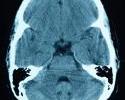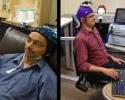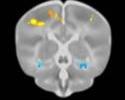Researchers believe they have made a primitive type of communication with two otherwise nonresponsive patients, including one in a persistent vegetative state.
Researchers Lorina Naci, PhD, and Adrian Owen, PhD, of Western University in London, Ontario, reported online in JAMA Neurology that they were able to garner "yes" or "no" answers from these patients by using functional MRI (fMRI) to measure their brain activity and interpreting their responses.
Their study involved a patient with only minimal consciousness and another in a persistent vegetative state for 12 years following a brain injury.
To our knowledge, we show for the first time with functional magnetic resonance imaging that behaviorally nonresponsive patients can use selective auditory attention to convey their ability to follow commands and communicate.
The yes/no answers given lit up the region of the brain corresponding to that region which had been established previously as being an area of increased brain activity with regard to responses to the words yes and no.
Researchers showed that not only did the patients hear the words and questions spoken to them, but that they could use their attentiveness to these words as a means of giving a response.
An example cited was one in which the patient in a vegetative state was asked if he was in a supermarket. His 'answer' (according to the active brain region) was no; when asked if he was in a hospital, his answer was yes. He also answered correctly – in yes/no form – about his name.
The technique may be useful in establishing basic communication with patients who appear unresponsive to bedside examinations and cannot respond with existing neuroimaging methods.
Source: MedPage Today







